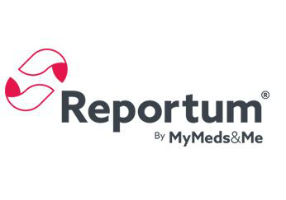
However, despite the widespread benefits, the reality is that big data is not always good data and without good governance it can lead to inefficient spend and poor decision making. So, how can businesses navigate the data minefield and ensure their data is robust enough and of sufficient quality to make a positive difference to their bottom line?
Waking up to the opportunities
Across all industries, data that is collected and analysed effectively can give businesses a deep understanding of their own organisation and the markets they operate in as well as the ability to accurately predict their customers’ behaviour. The opportunities and potential benefits are huge.
Netflix for example, uses data to personalise its global streaming service for its 137 million customers. Eighty per cent of content viewed on Netflix is now through the company’s data-driven recommendation system[2] .This ensures high customer satisfaction and retention and, crucially, Netflix’s ongoing dominance of the streaming industry. Similarly, the oil giant Shell built a data analytics platform to help it predict where and when parts for its oil drilling machines were likely to need replacing, enabling it to respond rapidly, reduce machine downtime, and save itself millions of dollars a year[3].
Technological advances such as Artificial Intelligence (AI) are further pushing the boundaries of big data’s potential. AI software can analyse large volumes of complex data in minutes, something that might take a human researcher months to achieve. Google’s AI software programme, Inception v4, was able to detect melanoma cases at a rate of 95% in comparison to 86.6% of its human counterparts[4] and by 2026, the technology is forecast to generate $13bn in benefits in the clinical trial process alone due in part to its unique ability to source appropriate candidates for complex clinical trials so quickly and efficiently.
What challenges do we face?
All data analysis can only ever be as good as the data being analysed and all successful use of big data in a business or ‘real world’ context will have one thing in common – high quality data. In particular this means that the data must be valid; factually sound and reliable, and have value; the data must be meaningful and facilitate decisions in the real world.
Despite the vast potential for AI, it too is highly dependent upon the quality of the datasets used. Deficiencies in data quality cannot be rectified by post-processing and poor quality data may not only risk business success but its biases or misapplication can also critically affect people’s livelihoods and their health and safety.
Across all industries, there are a number of potential barriers high quality data. Inadequate and outdated data reporting systems, time lags, translation and transmission problems, different regulatory backdrops and collection methods as well as the use of intermediaries can all contribute to undermining the validity and value, and therefore quality, of the data.
What is good data and how do we get there?
Good data has been responsibly collected, collated, governed and visualised, creating factually sound and reliable data that enables business decisions to be adequately justified and safe.
Fortunately, technology is providing many of the solutions to the challenge of ensuring the validity and value of data captured. Innovations in online products and digital tools mean that companies can avoid outdated collection methods which are inaccessible to others and incompatible with multiple systems. Live data tools such as mobile devices are also enabling the capture of data at source more easily, which removes the risk of outliers and introduces reliability. Smart businesses are embracing these solutions and seeing the benefits in their product offering and bottom line. The use of ‘blackbox’ devices in the car insurance industry for example allows insurers to determine liability and the accuracy of a premium, generating an evidence-based and more accurate product offering to its customers.
In the pharmaceutical industry, technology is also having a transformative effect. Key information about medicines and associated adverse events information can now be captured in real time, enabling a faster response and more informed interventions from Pharma. Reportum, for example, is a cloud-based, fully secure, multi-platform safety data management tool that digitises the capture of adverse event data at source, which optimises its quality. This gives Pharma far more accurate data in a standardised output. on which to base their assessments refining the prescribing and use of medicines. Ultimately getting purer data faster maximises the benefit-risk profile of all medicines and the healthcare delivered to patients.
Data has the capability to resolve problems, identify new opportunities and inform business strategy when it is used intelligently. Sourcing high quality data which generates responsible, accurate insights is the first step to unlocking the full potential of any business.
[1] https://www.businesswire.com/news/home/20181205005270/en/Global-Big-Data-Analytics-Market-2018-Data
[2] https://insidebigdata.com/2018/01/20/netflix-uses-big-data-drive-success/
[3] https://www.cio.com/article/3221621/analytics/6-data-analytics-success-stories-an-inside-look.html
[4] http://www.pharmafile.com/news/517510/google-ai-outperforms-58-dermatologists-detecting-melanoma

MyMeds&Me is recognised as an innovator and industry leader in the pharmacovigilance and life science arena. Maintaining active partnerships with other industry-leading solution and service providers ensures the company is best placed to deliver benefit and optimisation to pharmacovigilance operations.

























